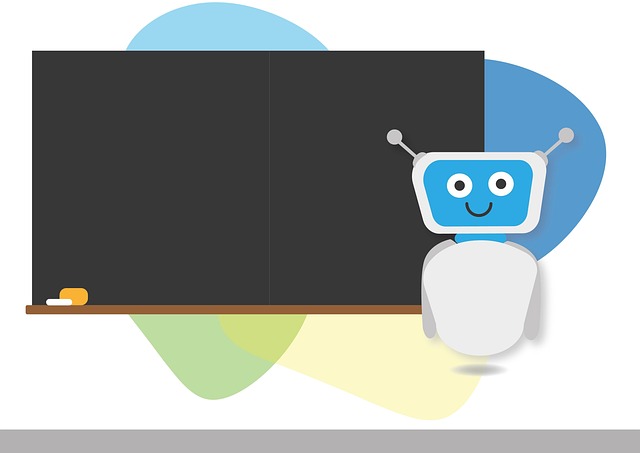AI chatbots are transforming human-computer interaction by offering natural, conversation-driven experiences across diverse sectors like customer service, healthcare, and education. Powered by advanced Natural Language Processing (NLP), these intelligent virtual assistants can handle complex tasks, from answering queries to executing transactions, while leveraging data analysis for personalized interactions. As NLP advances, AI chatbots become more adept at understanding linguistic nuances, enhancing their ability to engage in meaningful dialogues. They revolutionize user engagement by providing immediate, contextually relevant assistance, reducing response times and workload on human agents. Ethical considerations, including transparency, consent, and privacy protection, are crucial as these chatbots integrate deeper into daily life, with continuous NLP advancements promising even more sophisticated interactions and new forms of collaboration.
The rise of AI chatbots is revolutionizing how we interact with technology, ushering in a new era of fluid, conversational interfaces. This article delves into the transformative power of these virtual assistants, exploring the role of Natural Language Processing (NLP) in enabling seamless user experiences. We’ll uncover benefits across industries, from customer service to healthcare, and consider the ethical landscape and future potential of AI chatbots. Get ready to discover how AI is reshaping the way we communicate with machines.
- The Rise of AI Chatbots: Transforming Tech Interactions
- Understanding Natural Language Processing in AI Conversations
- How AI Enables Fluid User Experiences through Chat
- Benefits of Conversational AI in Various Industries
- Ethical Considerations and Future Prospects of AI Chatbots
The Rise of AI Chatbots: Transforming Tech Interactions

The rise of AI chatbots marks a significant shift in how we interact with technology, transforming tech interactions into natural, conversational experiences. These intelligent virtual assistants leverage advanced natural language processing (NLP) and machine learning algorithms to understand and respond to user queries in human-like ways. As a result, they’re increasingly being integrated across various industries, from customer service and e-commerce to healthcare and education.
AI chatbots are not only enhancing accessibility by providing instant support 24/7 but also personalizing interactions based on user preferences and behaviors. Their ability to learn and adapt makes them versatile tools that can handle a wide range of tasks, from answering simple questions to facilitating complex transactions, thereby streamlining processes and improving overall user satisfaction.
Understanding Natural Language Processing in AI Conversations

Natural Language Processing (NLP) is a cornerstone of modern AI chatbots, enabling them to understand and interpret human language. By breaking down complex linguistic structures into simpler components, NLP algorithms allow ai chatbots to process user inputs, discern intent, and generate contextually relevant responses. This technology powers seamless conversations, making interactions with AI feel more natural and intuitive.
NLP in AI conversations involves several key processes, including text analysis, sentiment detection, entity recognition, and semantic understanding. These mechanisms help the chatbot comprehend nuances, such as sarcasm or idiomatic expressions, enhancing its ability to engage in meaningful dialogues. As NLP continues to evolve, AI chatbots become increasingly adept at handling diverse linguistic challenges, paving the way for more fluid and engaging tech interactions.
How AI Enables Fluid User Experiences through Chat

AI chatbots are transforming the way users interact with technology, paving the way for fluid and intuitive experiences. These intelligent assistants leverage natural language processing (NLP) to understand user queries, context, and intent, enabling seamless conversations that feel natural and human-like. By processing vast amounts of data and learning from interactions, AI chatbots can provide personalized responses, adapt to user needs, and even anticipate future requirements.
Through contextual awareness, these chatbots offer a dynamic and responsive interface, ensuring users receive relevant information or assistance without the need for complex navigation. Whether it’s answering queries, offering product recommendations, or guiding users through a process, AI-powered chat interactions enhance usability, save time, and foster a more engaging and accessible user experience.
Benefits of Conversational AI in Various Industries

Conversational AI, powered by advanced natural language processing (NLP) and machine learning technologies, is transforming interactions across various industries. One of the key benefits is its ability to provide personalized and immediate assistance to customers, significantly enhancing user experiences. AI chatbots can handle a wide range of tasks, from answering simple queries to resolving complex issues, thereby reducing response times and workload on human customer service representatives.
In healthcare, for instance, conversational AI assists patients in booking appointments, retrieving medical records, and even receiving initial assessments. In retail, AI-driven chatbots offer product recommendations, handle returns, and facilitate post-purchase support. Moreover, these AI assistants can analyze user conversations to gather valuable insights, helping businesses make data-driven decisions and improve their services over time.
Ethical Considerations and Future Prospects of AI Chatbots

As AI chatbots become more integrated into daily life, ethical considerations are paramount. Transparency and consent are crucial; users should be clearly informed about interacting with an AI and give explicit permission for data collection and usage. Bias in training data can lead to discriminatory outcomes, so developers must strive for diverse, representative datasets to ensure fairness and accuracy. Privacy is another key concern; chatbots must securely protect user information and adhere to stringent data protection regulations.
Looking ahead, the future of AI chatbots holds immense potential. Continuous advancements in natural language processing will enable more sophisticated conversations and context understanding. Personalized interactions tailored to individual preferences can revolutionize customer service and support. Moreover, AI chatbots could play a pivotal role in education, healthcare, and even creative fields, augmenting human capabilities and fostering new forms of collaboration.






